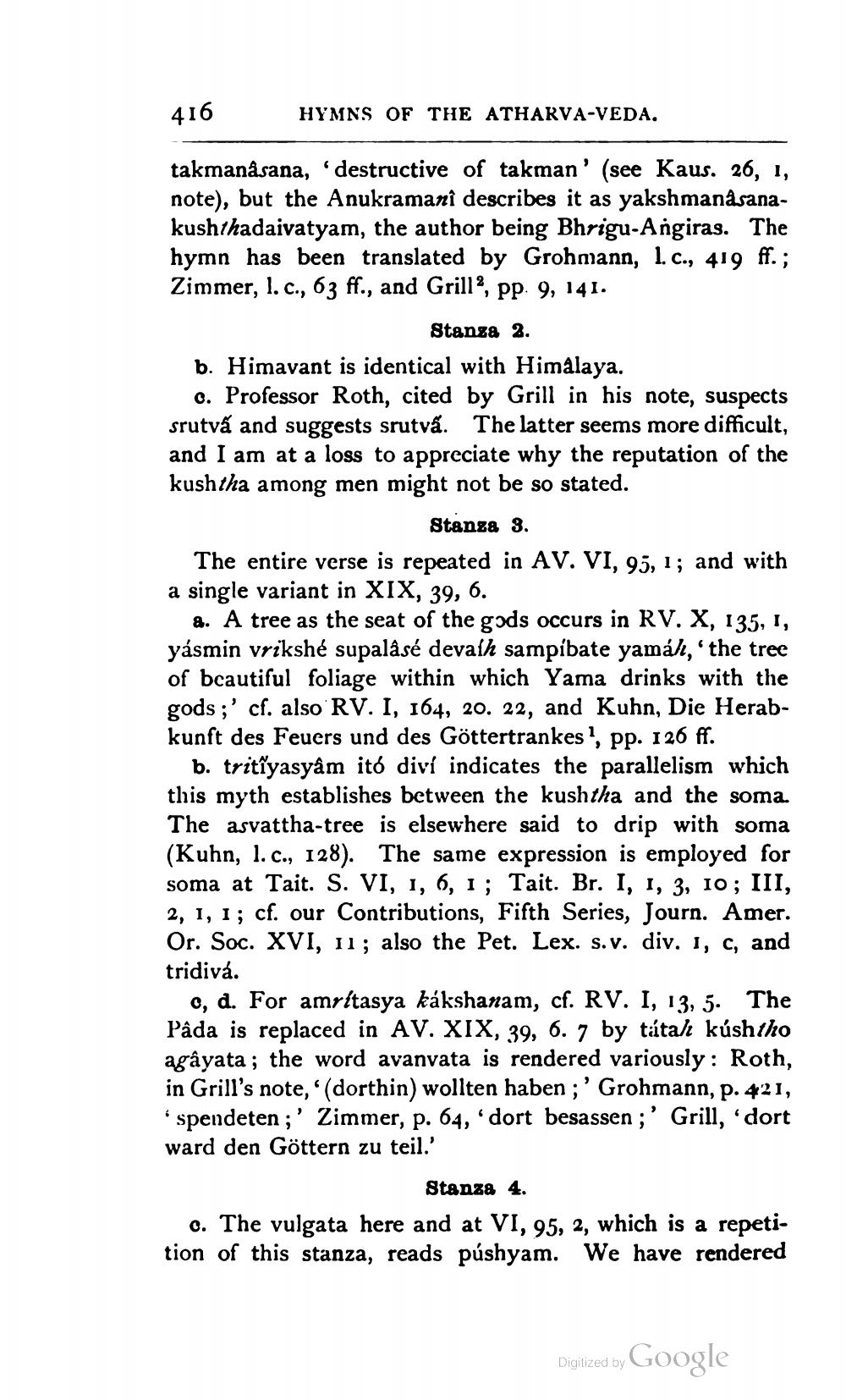________________
416
HYMNS OF THE ATHARVA-VEDA.
takmanåsana, 'destructive of takman' (see Kaus. 26, 1, note), but the Anukramani describes it as yakshmana sanakushthadaivatyam, the author being Bhrigu-Angiras. The hymn has been translated by Grohmann, 1.c., 419 ff.; Zimmer, 1.c., 63 ff., and Grill, pp. 9, 141.
Stanza 2. b. Himavant is identical with Himalaya.
0. Professor Roth, cited by Grill in his note, suspects srutvá and suggests srutva. The latter seems more difficult, and I am at a loss to appreciate why the reputation of the kushtha among men might not be so stated.
Stanza 3. The entire verse is repeated in AV. VI, 95, 1; and with a single variant in XIX, 39, 6.
2. A tree as the seat of the gods occurs in RV. X, 135, 1, yasmin vrikshé supalåsé devalh sampibate yamah, the tree of beautiful foliage within which Yama drinks with the gods;' cf. also RV. I, 164, 20. 22, and Kuhn, Die Herabkunft des Feuers und des Göttertrankes!, pp. 126 ff.
b. tritîyasyam itó diví indicates the parallelism which this myth establishes between the kushtha and the soma. The asvattha-tree is elsewhere said to drip with soma (Kuhn, 1.c., 128). The same expression is employed for soma at Tait. S. VI, 1, 6, 1; Tait. Br. I, 1, 3, 10; III, 2, 1, 1; cf. our Contributions, Fifth Series, Journ. Amer. Or. Soc. XVI, 11; also the Pet. Lex. s.v. div. 1, c, and tridiva.
0, d. For amritasya kákshanam, cf. RV. I, 13, 5. The Pâda is replaced in AV. XIX, 39, 6.7 by tátah kúshtho agâyata ; the word avanvata is rendered variously: Roth, in Grill's note,' (dorthin) wollten haben ; 'Grohmann, p.421, * spendeten ;' Zimmer, p. 64, dort besassen ;' Grill, "dort ward den Göttern zu teil.'
Stanza 4. c. The vulgata here and at VI, 95, 2, which is a repetition of this stanza, reads púshyam. We have rendered
Digitized by Google




